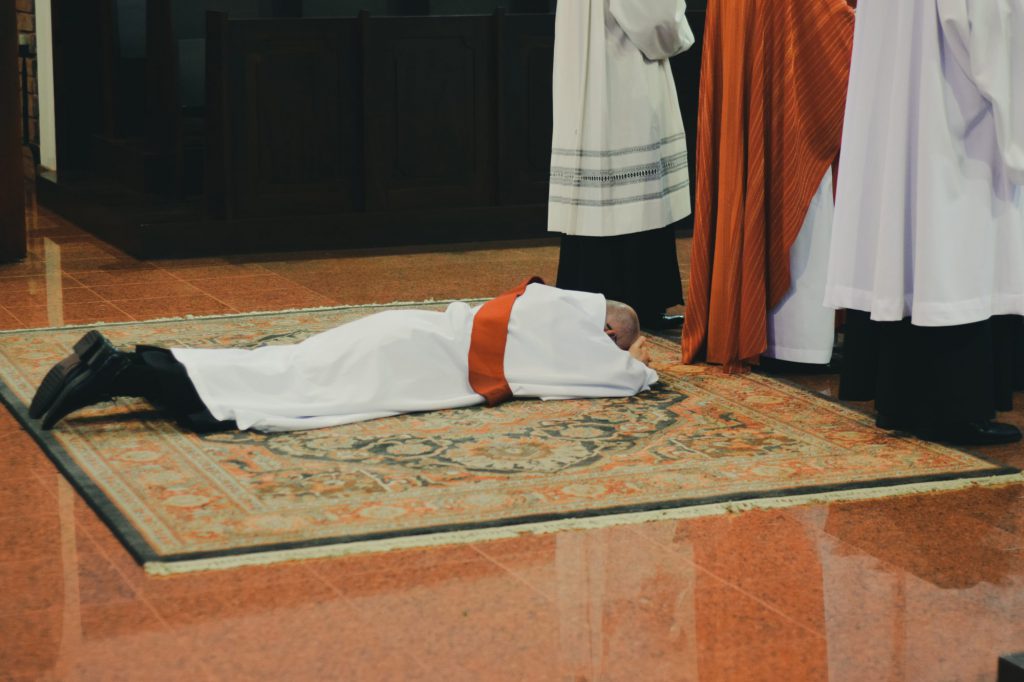
Published October 17, 2019
Eyes are turned to Rome these days, waiting to see what will come of the Amazonian Synod. The synod fathers, as everyone by now knows, have been flirting with the idea of ordaining married men so as to better serve the sacramental needs of the Amazonian people. Some remote villages only have a priest visit once or twice a year. At the same time, there are good reasons that many see the push to ordain viri probati as a stalking horse for a referendum on clerical celibacy far beyond Amazonia. If a shortage of priests is sufficient cause to ordain married men in the Amazon, why not do the same in Dublin or Munich.
Here in the States, arguments against the discipline of clerical celibacy often pop up in the context of the sexual abuse crisis. The most conspicuous example in this genre was a cover story in The Atlantic, a few months back, which ran under the title, “Abolish the Priesthood.” The article had far (far) less value as serious argument than it did as a cultural marker indicating just how much the perception of the Catholic priesthood has changed – among both Catholics and the wider public.
Since last summer, much of the discussion about the abuse crisis has focused on justice for victims, accountability for bishops, and the role laypeople can and must play in renewing the Church. There are obvious reasons for these emphases. Yet in a somewhat ironic twist, there has been less attention paid to the ways in which our priests have experienced the crisis.
For many of the priests I’ve spoken to, the last year has been a double trial. They have felt the same anger, frustration, and betrayal as the laymen and women they serve, but they have also had to carry the added knowledge that men with whom they share a fraternal bond committed these sins and crimes. Fairly or not, our priests are left to deal with the pastoral mess their brothers have made. They must be shepherds to sheep who have learned not to trust shepherds.
It’s not just the guilt-by-association (or at least suspicion-by-association) that our priests deal with; the fallout from the crisis has had real impacts on parish life. How many stories have you heard in recent months about Mass attendance being down? Or about parish involvement flagging? Or about weekly contributions in the collection basket drying up?
Most of the stories like this that I’ve heard are just that: stories. Anecdotes. It’s been less than 18 months since the McCarrick story broke. The long-term effects of the crisis are hard to discern. Are these challenges directly tied to the abuse crisis? How much do these challenges vary from parish to parish or diocese to diocese? Has the crisis been felt the same in wealthy suburban parishes as in poor urban or rural parishes? What about minority parishes?
What about our seminarians? What kind of men answer the Call at a time like this? And how do young men – seminarians and newly ordained priests – see things differently than priests who were ordained in a very different time, when the future of the Church in the United States seemed to be on a very different trajectory?
I have lots of questions like these. If these questions interest you, too, permit me to make a little sales pitch.
Later this month, The Catholic Project (an initiative of the Catholic University of America, and where I serve as executive director) will host a panel discussion to look more closely at how our priests have experienced the fallout from the past year – and how they see the fallout from the past year affecting the future of the Church in the United States.
I’ve invited four priests from the Diocese of Arlington and the Archdiocese of Washington to participate, and I know you’ll find they have some very interesting – even unexpected – things to say. If the Church is a field hospital, these men are combat medics.
Fr. Paul Scalia is Vicar for Clergy in the Diocese of Arlington and Pastor of Saint James Parish in Falls Church, Virginia. Readers of The Catholic Thing will know him well. You might also know Fr. Carter Griffin, the rector of St. John Paul II Seminary in the Archdiocese of Washington. He is the author of Why Celibacy: Reclaiming the Fatherhood of the Priest, published earlier this year.
Our other two panelists are both young priests of the Archdiocese of Washington. Fr. Matthew Fish is administrator of Holy Family Church and School in Hillcrest Heights, Maryland. He’s one of the savviest and most interesting young priests I know. (If you’re on Twitter, he’s definitely worth following.) Fr. Robert Boxie III was born and raised in southwest Louisiana and came to the Washington area after finishing law school at Harvard. He is currently the parochial vicar at St. Joseph Catholic Church in Largo, Maryland.
The panel will take place on October 29, at 7:00 in the evening, Eastern Time. If you’ll be in DC, you’re welcome to attend; just make sure you register. For the rest of you, the whole event will be live-streamed. All the details and links to register for live-streaming are available here.
I sincerely hope you will be able to join us.
© 2019 The Catholic Thing.
Stephen P. White is a fellow in Catholic Studies at the Ethics and Public Policy Center in Washington.











